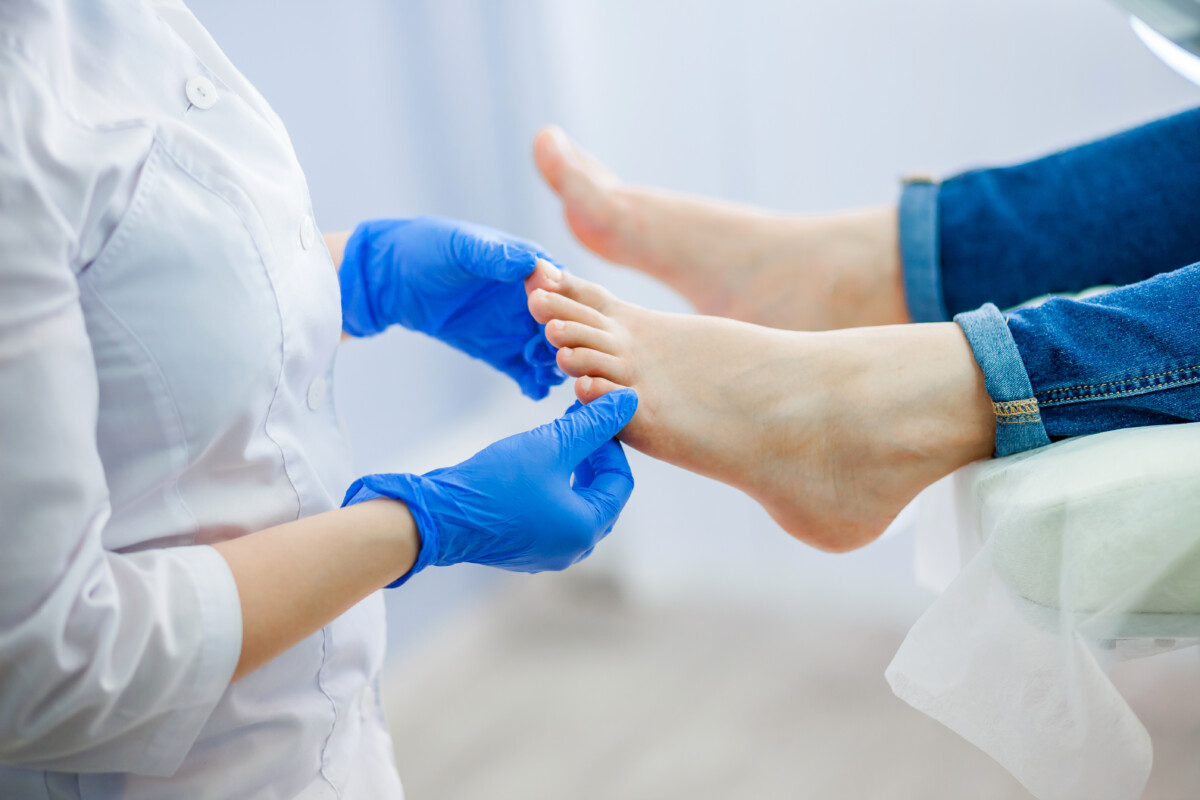Best Foot Forward with Diabetes

Uncontrolled diabetes can damage blood vessels, especially in the feet. When blood vessels get blocked, nerves in the feet begin to die. When this happens, a feeling of “pins and needles”, pain or numbness results.
Numbness may not sound like a bad thing, but it can be very dangerous. Pain lets us know when we’re getting hurt. If there isn’t any pain, we assume that everything is ok. We keep stepping on the nail, or wearing the shoes that don’t fit, or holding our feet too close to the fire. We can get an injury that goes from bad to worse without even knowing something is wrong.
A loss of circulation in the feet can also make it hard or impossible for the feet to heal from an injury. When an injury can’t heal, the wound is much more likely to get infected.
When an infected wound can’t heal, the tissue around the wound begins to die. As the wound gets bigger, more and more tissue may die. In aworst-case scenario, a person with diabetes may need to have an amputation. After a below-the-knee amputation, a patient with diabetes has a lifespan of less than three years. Factors affecting lifespan following below-knee amputation in diabetic patients – PubMed (nih.gov)
Amputations can be prevented with daily footcare. Here are 10 things that every diabetic should do to care for their feet:
1) Wash and dry your feet every day. Cleanliness decreases the risk of infection.
2) Moisturize your feet with lotion each day to prevent cracking.
3) Always wear clean socks.
4) Inspect your feet every day. If you can’t reach them or see them clearly, use a mirror to look at them. Don’t forget to look between your toes and on the bottom of your feet.
5) Always protect your feet by wearing shoes and socks.
6) Only wear shoes that fit properly. Shoes that don’t fit can cause blisters and other foot injuries.
7) Keep your floors clean and clear of debris that could injure your feet if stepped on (Legos come to mind here).
8) Be sure to exercise but be careful of your feet when you do.
9) When swimming or wading in lakes and streams, wear water shoes.
10) See a podiatrist regularly for proper nail care.
RMH Foot and Ankle: 765-932-7063
